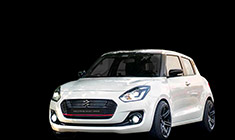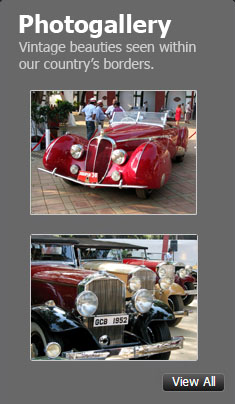News
My experience & review of after-market CNG Kits
This is because many users like me feel that CNG kits run ‘fine’ up to a certain point and then all kind of troubles crop up.
BHPian syravi recently shared this with other enthusiasts.
To fit after market CNG kits or not in Jazz or any other car? Busting myths with solid technological reasons, indepth research & personal experiences.
This is a bit longish article. And I will digress by going first into my experience with both after market fitted CNGs and company fitted CNGs. This is because many users like me feel that CNG kits run ‘fine’ up to a certain point and then all kind of troubles crop up.
My experience with both after market and company fitted kits with Maruti Cars
After market fitted kit
I fitted my Maruti 800 with a brand new BRC kit which was the top brand at that time from one of the top CNG fitment guys. For 20,000 kilometres, things went fine. I saved a lot of money and was congratulating myself for making the bold decision.
Nightmare of expenses and loss of peace of mind begins
After 20,000 km, things started falling apart. It was always a cylinder missing, car going out of tune and so many problems that it was a nightmare for me to shunt between the petrol guys and the CNG guys who both blamed each other for the problems I was facing. Naturally, no solutions seemed to be coming.
Hit and trial suggestions by mechanics without technological knowledge – burning a hole in pocket and running on a wild chase of possible solutions.
Among the problem solving things that I went through at great cost were – frequent change of spark plugs, even considered iridium spark plugs (but a timely research proved they made minimal or no difference), change of alternator because to quote the mechanic: "the current required by CNG kits is higher." I also ended up with a new radiator, change of fan belts (according to mechanics: “the engine was heating up as CNG produces more heat”), 3 types of coolants – again for better cooling, a new, higher ampere battery (same argument – CNG kits need higher currents), and change of ignition coils. All these over a period of 5 years in which every month or so I would spend time, energy and money on the workshops.
End of the nightmare – Choosing a factory-fitted CNG car from Maruti stable – WagonR
When my job required me to commute to Gurgaon from Delhi, I knew this car would let me down on the highway for sure. So I sold my Maruti 800 but not before I milked 50K from the kit. Yes, I saved a lot of money but my precious Sundays and Saturdays were spent at garages.
Since the commute distance was 70 kms both way for 5 days a week and I did not like diesel cars, I settled for company fitted WagonR CNG. Petrol was not an option. The dealer assured me that Maruti had taken care of all the troubles that CNG kits give and this factory fitted car runs like a petrol car. On the test drive I really found the claim to be true and bought the car.
Every day while driving I would wonder at the beauty of the engine. It was amazing and never did I feel any lag, any miss from the CNG kit. It was super efficient and fantastic.
I used to get my car serviced by Maruti Owned service station at Naraina and they were very good.
Trouble again after 40,000 km
Things were fine and then at 40,000 km, I felt the engine was dragging and losing its power. The car felt heavy and shitty and I got worried. It looked like that engine had lost half its power and I thought maybe all those guys who said that CNG corroded the engine because it was dry were probably right.
The engine started missing too and out of tune. I was at Gurgaon and since it looked like trouble I went to a local shop and he tinkered a bit and made the problem worse. I came to know for the first time that company fitted CNGs cannot and should not be tuned by local workshops.
Finally, stumbling upon the mystery of 2 CNG filters
I sent the car for service and after service too, the car did not feel right. I went through the service manuals and was surprised. It said there were 2 CNG filters apart from the air filter which should have been changed.
It said two things:
CNG REDUCER FILTER CARTRIDGE WITH O RING TO BE REPLACED at 40,000!
CNG LOW PRESSURE FILTER CARTRIDGE WITH O RING TO BE REPLACED at 20,000, 40,000, 60,000, 80,000 and 1 lac Kms!
None of that was done, even at one of the best service centre owned by Maruti! It shows the complete lack of awareness! I met the manager of the service department at Naraina and he said there was no point in changing the filters. According to him no one changes it and in so many years they have not changed these filters for a single car. In other words he was asking me to adjust to the new low performance of the car by pushing the accelerator harder. I was not convinced and asked him if the parts were available. He said he would have to get them. Both filters would cost Rs. 4,000 for me. It was quite a bit but I ordered them.
It took 4 weeks for them to get the first filter which is before the reducer (the UFO kind of chamber where the gas is mixed with air before inletting into the engine).
Magic happens after the first filter replacement.
When I got back my car after the filter replacement I could not believe the performance I was getting. My car was as good as new. I was delighted. I asked the manager when will the second filter come? This filter is inside the reducer and is much more complicated to replace. He asked me did I really need it since my car was good and I said yes.
At home, I used a hammer to smash the old filter and guess what I saw in it? Oil and it was dirty. I knew somehow it was clogging my CNG kit.
The second filter too dramatically changed the performance of my car. When I got the old filter back it was full of dirt and smelled very bad. Even that too was oily.
Researching the internet
I decided to Google for what I was seeing. I typed oil presence in CNG filter and the result was a link to a pdf. It gave me the shock of my life! Here is what it said:
Natural gas used for vehicular application and delivered from a CNG fueling station must be free of any solid material, water or oil. The heart of the natural gas fueling station is the compressor and most compressors require lubrication (oil). Over time, it is impossible to prevent some amount of the lubricant from leaking into the fuel stream. Specific equipment, called a coalescing filter, is designed to remove any liquid or solid contaminate in the high-pressure natural gas. They need to be installed downstream of the compression system, before the compressed natural gas enters the time-fill or high pressure storage system, as well as on-board the vehicle’s fuel system, to ensure that oil does not get into the on-board fuel storage cylinders and ultimately into the engine.
So the culprit in this case was not air but the compressor installed at CNG stations. The oil from the compressor would invariably mix with CNG and get inside the filter and to some extent the engine too. The damage, the pdf said, could be huge for the engine and even the CNG kit. It could damage the solenoids of the CNG kit too! So it was not just a matter of performance. It was a matter of protecting CNG kit and the engine that the CNG filters should be replaced periodically.
No where in the net is the complete finding mentioned, so I have taken pains to write this article. So guys it is not the CNG which will pull your engine down, it is the oil of the CNG station compressor that will take your car down, if you don’t change the filters regularly!
Without a second doubt, I got the second filter changed. I had to chase them for a week, constantly before they finally said they have the part in the store. I changed this part and the performance of my car is even better! This particular filter was open for me to see. It had a spring and paper/cloth filter and the paper was clogged with dirt and very smelly. I paid Rs. 1,480 this time.
I drove my Wagon R CNG for 8 years before selling it at a great price. The guy at Cars24 who spent 2 hours trying to find flaws with my car had one remark to say in the end: Your car is in remarkable condition! I got 2.36 lakhs for a car I bought for 5.5 lakhs after a very high usage!
No outside CNG kit fitter provides these 2 filters in any of the kits!
I could have continued to use my WagonR but sold it because my son who bought Honda Jazz V got placed abroad and wanted me to use his car. It was just 4 years old and selling it would have meant taking a huge hit. I was hesitant because it did not have a CNG kit. But since I was now retired, I sold my WagonR and took to Jazz V automatic.
Jazz V Automatic is Amazing
My knee had started troubling a bit in the WagonR and Jazz automatic was truly luxurious and amazing. It felt very comfortable and plush compared to the WagonR in every sense.
Jazz V – Ouch Petrol Price hurts!
While I was paying just Rs. 2,500 for a commute of 2200 kms from Delhi to Gurgaon and back with WagonR CNG, I am now paying nearly Rs. 2,000 for a commute of just 500-600 kms in winters and more in summers. Of course, the drive to Gurgaon was on a highway and now it is mostly city traffic. Still, the mileage hurts and I thought of fitting an after market kit again.
My search for a kit with filters – All assurances on performance but no filters
I checked and checked and checked but no CNG fitter in Delhi was fitting the filter before the reducer. They had no spares and no way they could get them. One or two said they could fit a filter before the reducer but the way they said it was unsure. Besides they would be making an exception just for me. And there was no guarantee how it would affect the performance because their kits were running good without a pre-filter.
Say no without these filters and their replacement
Without these filters and their replacement, the oil from CNG compressors will ultimately clog your CNG kit first and then damage your car engine. So please, don’t go for these after market kits. They will run well for 30-40k kms and after that it will be oil which will start causing much of the damage many of the users are feeling.
My decision - Not to go for after market fitted CNG kits
Even though I am not happy paying the cost of petrol, I have decided not to go for an after market CNG kit. I was tempted to believe the words of the fitment guys but when I googled the complaints were numerous and I have decided to use my Jazz minus CNG. If the drive becomes unaffordable, I will sell it and buy a company fitted CNG but that too has a downside to it. It wont have an automatic and my knees can no longer work the clutch like they used to.
No automatic car is being fitted with a CNG kit
Maruti is a CNG pioneer and has a huge range of automatic cars but none of the models are fitted with CNG kits. The conclusion is obvious. The combination is not successful and should not be attempted.
No 4 cylinder car is being fitted with a CNG kit
None of the 4 cylinder cars of Maruti have a factory-fitted CNG kit. This clearly means that the kit is not so successful in 4 cylinder cars. I am yet to see how they are fitting these after market kits in buses which have 6 cylinders and if they have filters installed. Haven't gone into it because it is outside my scope.
Myths surrounding CNG
My use of a factory fitted CNG car for 8 years confirms these facts which are available on the internet:
- CNG does not cause any damage because it is a dry fuel
- CNG does not corrode the engine
- CNG does not affect engine life
- CNG does not need higher current
- CNG does not need iridium spark plugs
- CNG does not need special after market filters
Facts
- CNG requires timely replacement of 2 CNG filters. The outside filter should be replaced after 20,000 km and the reducer filter should be replaced after 40,000 km.
- CNG is a clean fuel and more efficient than petrol
- CNG fitment is a matter of precision and lots of cars have caught fire because the fitment was bad
- People driving CNG cars should not drink or smoke inside their cars. Both alcohol and cigarette smoke can hide the CNG gas smell in case it leaks. A lit up cigarette can act as a lighter for leaking CNG gas and may cause an explosion.
- The costliest of the kits will fail beyond 40,000 km if they are used without CNG filter replacements as a part of the service routine
- The engine can be damaged by the oil that seeps from the reducer into the engine through the CNG gas and air mixture
- Air filter should be changed in CNG kits every 10k kms even if they look good
- Spark plugs should be changed after 20K kms even if they look good.
Check out BHPian comments for more insights information.


















